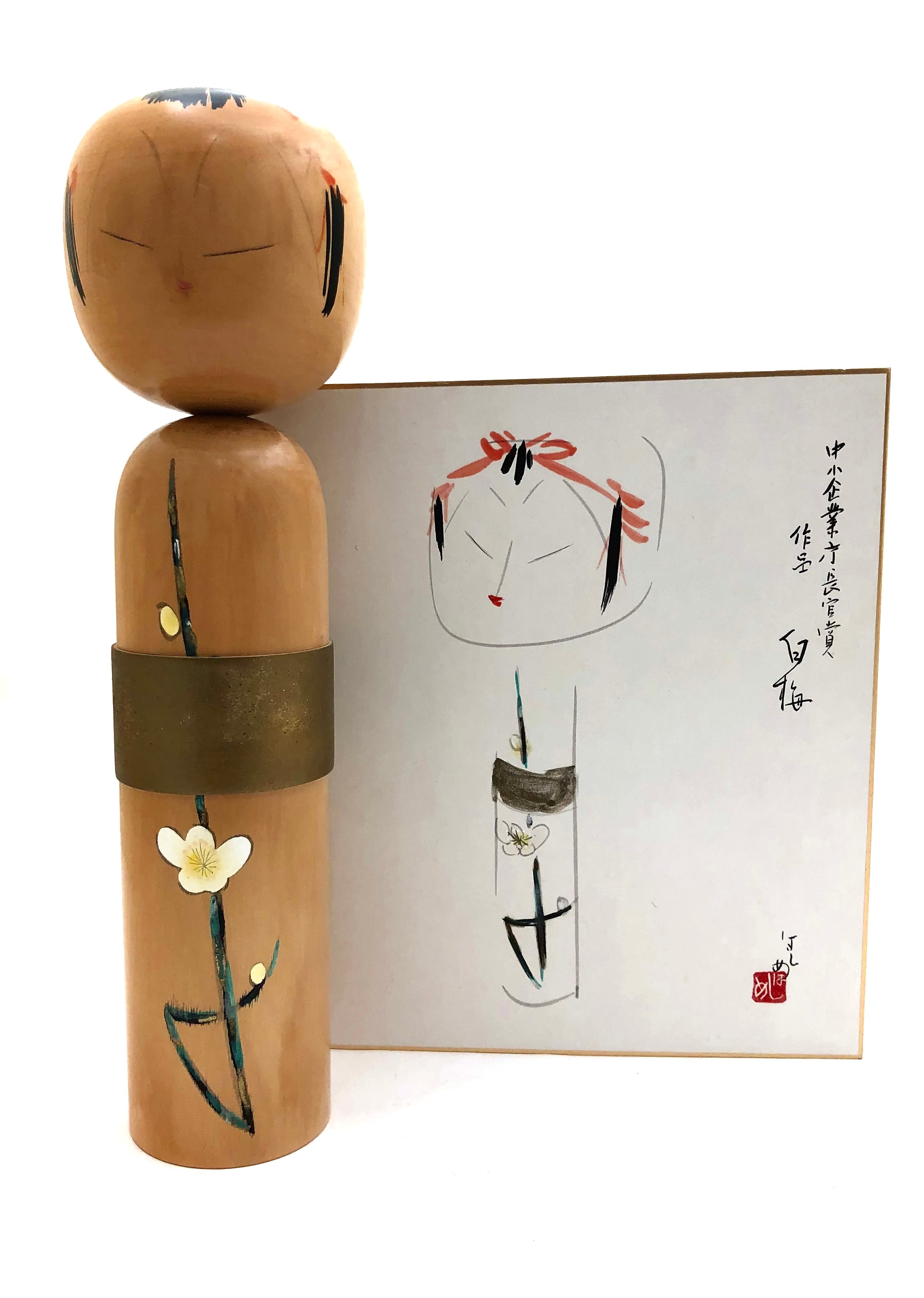
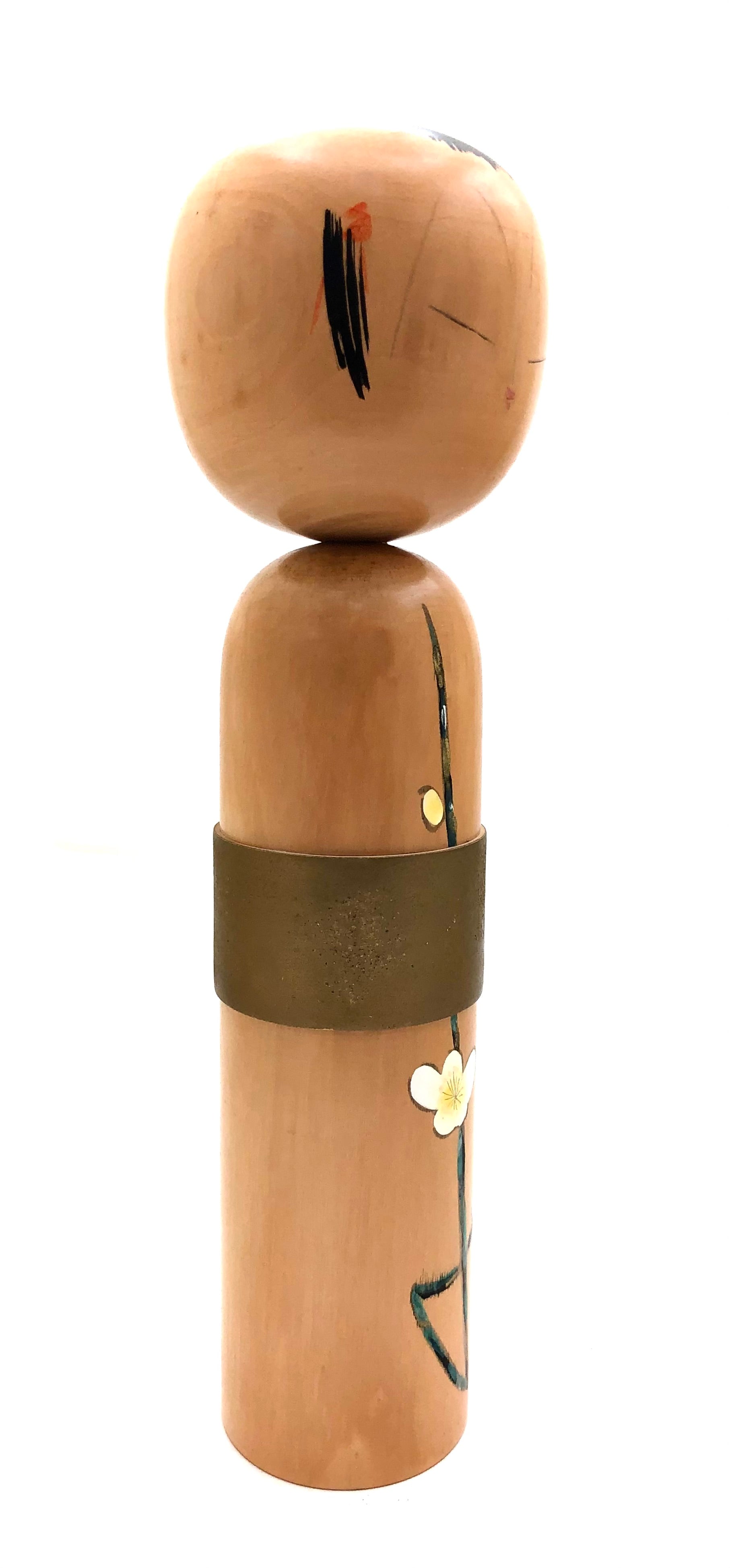
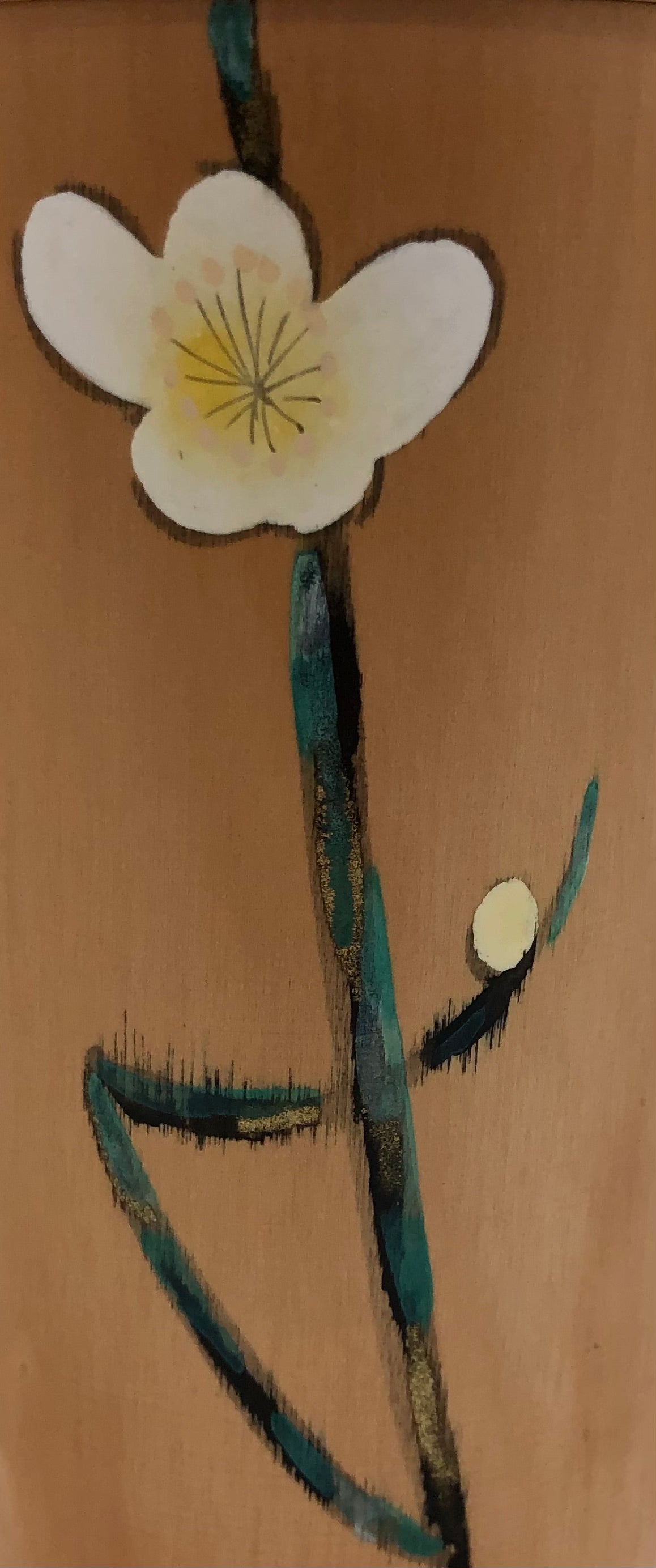
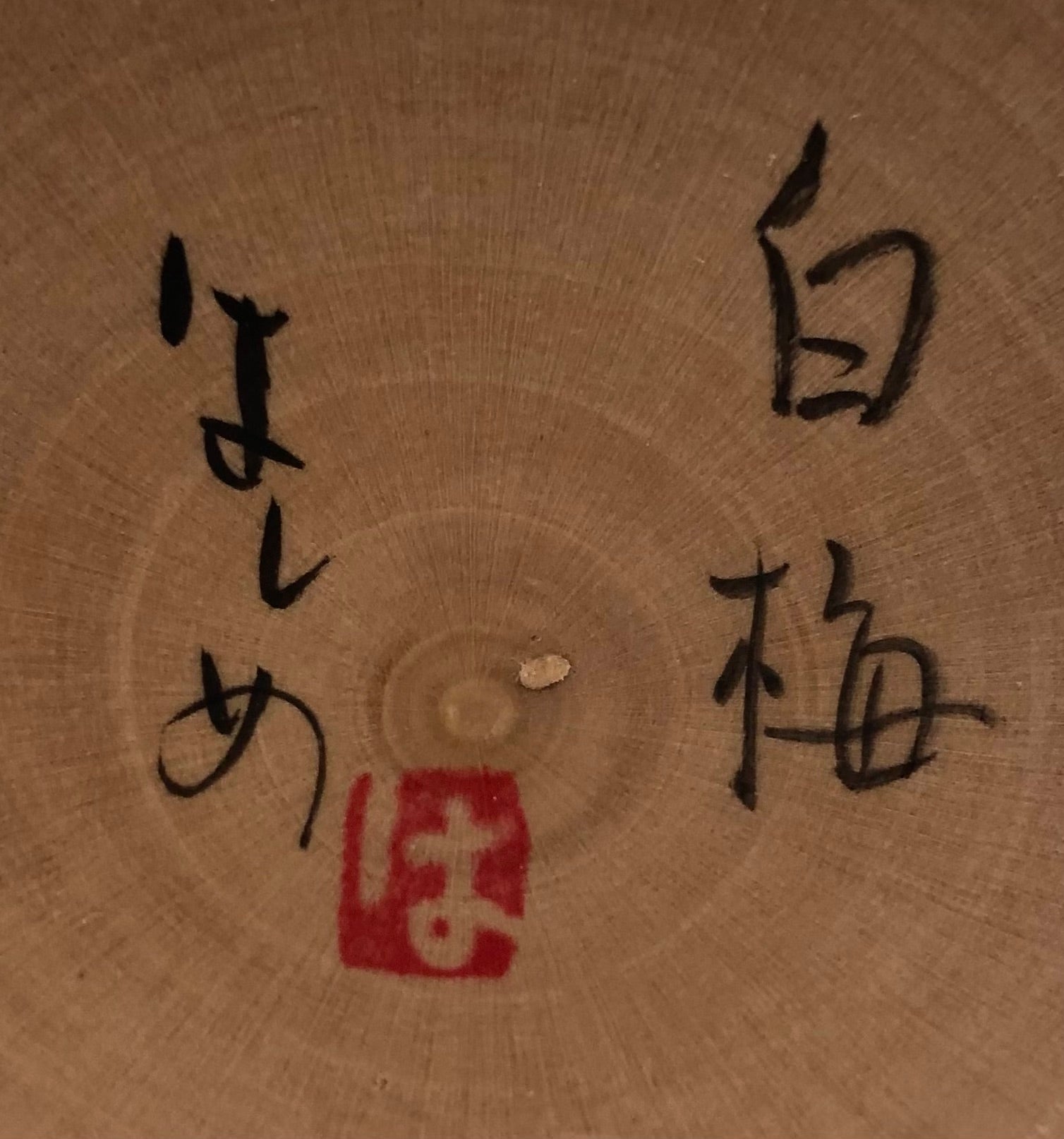
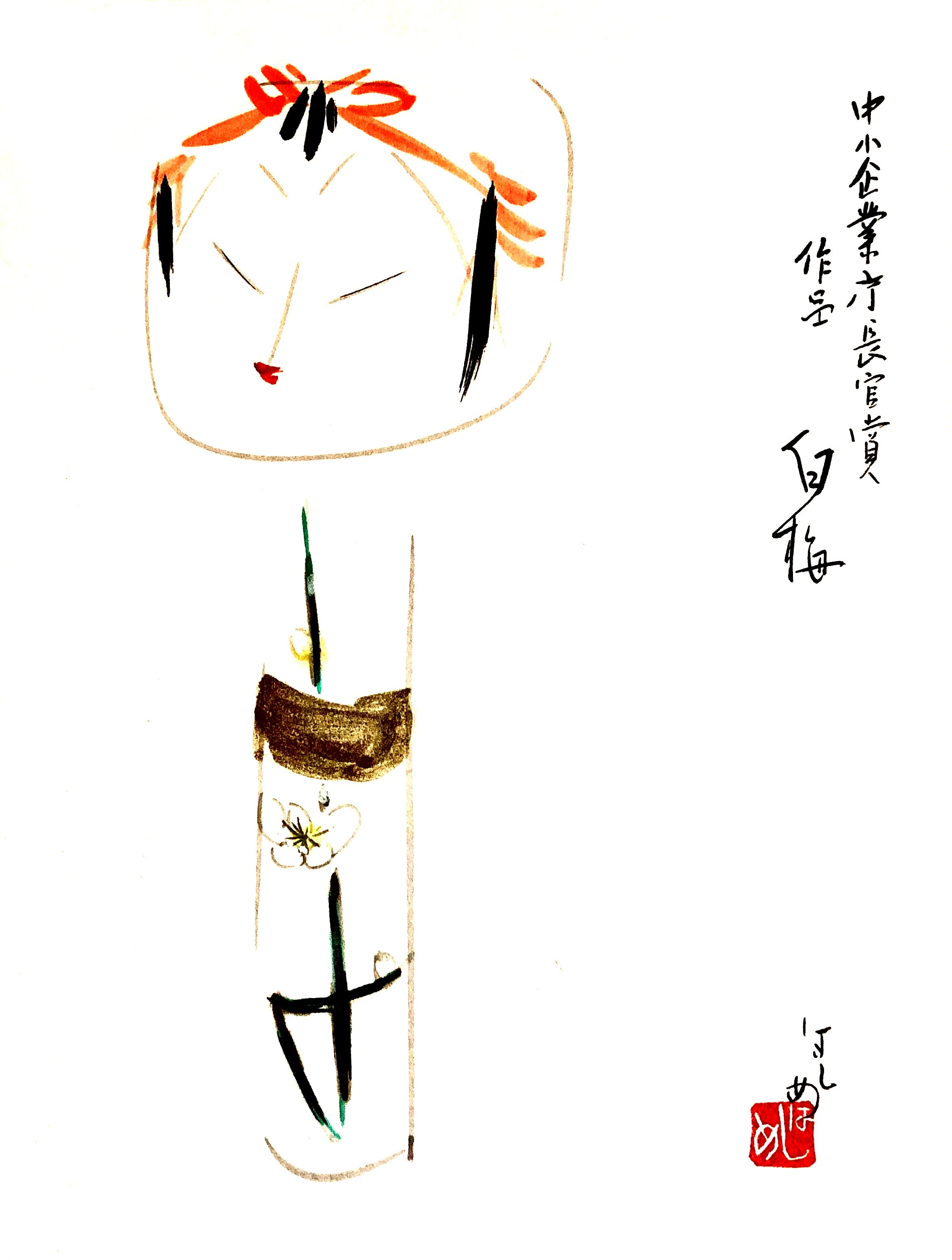
Vintage Japanese Sosaku Kokeshi entitled: Iroume | White Plum by Takahashi, Hashime
Dimensions: 14-0”h
This beautiful executed lathe-turned doll is from one piece of Elm, (Keyaki). The artist has used a branch of Plum, (Ume), with just one flowering branch to ornament this elegant doll and associated with the start of spring, because plum blossoms are some of the first blossoms to open during the year. In this case, the Plum blossoms and buds represented are a symbol of refinement, purity, nobility, and a reminder of past love. This doll uses an enduring metaphor for the ephemeral nature of life, an aspect of Japanese cultural tradition that is often associated with Buddhist influence.
The facial details are understated while she exhibits elegance with peaceful eyes, which is a trademark for Hajime-san, a suggested mouth, with black bangs and side hair fringes framing her face. A low relief wide Obi is painted in metallic bronze or gold, so as not to detract from the simple blossom motif. The bottom of the doll bears the artist’s signature, red stamp, and identification.
NOTE: The doll will arrive with an original drawing made at the time of the doll's creation by Hajime-san depicting the specific model with signature and full identification.
Condition: Superb outstandingly excellent, impressive, and beautiful. There are no chips, cracks, breaks, missing pieces, or restoration, and it retains its original details and finishes. The piece meets all the standards of the collectible Sosaku Kokeshi.
For additional information on the artist/family go to: https://mingeiarts.com/collections/artisan-woodworker-takahashi-hashime-1918-2002
The piece is published in Sosaku Kokeshi: Celebrating the Major Artists of the Creative Movement, 2022, pg.146 by Evans & Wolf. Originally a fine arts painter, Takahashi-san (1918-2002) is from Sendai, (where Traditional Kokeshi were born), in Miyagi Prefecture. His artistic background includes time spent as a craftsman of ‘Yuzen’ silk kimono dying. He is a multiple-award winner in yearly Kokeshi competitions, receiving the Prime Minister’s Award, the highest honor bestowed on Sosaku Kokeshi artists. All of his work is easily recognized by the painterly designs decorating his dolls.
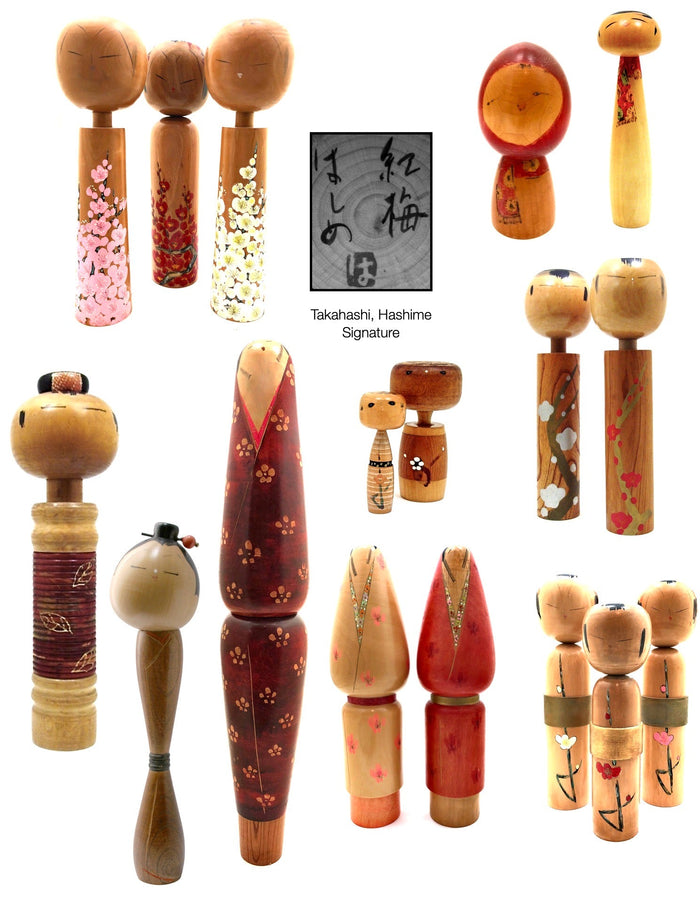
Artisan
Woodworker: Takahashi, Hashime
1918-2002
Biographical History:
Takahashi Hashime was originally a fine artist/painter. He is known for his colorful designs and the use of brush strokes. Takahashi-san is from Sendai, (where Traditional Kokeshi were born), in Miyagi Prefecture. His artistic background also includes time spent as a craftsman of Yuzen silk kimono dying which is why Kimono is a focus on all of his dolls. He is a multiple award winner in yearly Kokeshi competitions, receiving the Prime Minister’s Award, the highest honor bestowed on Sosaku Kokeshi artists. All of his work is easily recognized producing unique forms and details. Now deceased, his son, Akinori is carrying on the family’s tradition, but in limited production.
Collector's note – descriptive qualities, standard characteristics & ornamentation styles:
The most unusual quality of his dolls is that their heads are treated as a separate element which in many cases are a simple tapered element between the head and the body of the doll. The artist motif‘s range from realistic seasonal flowers such as abstract Plum flowers, (Ume), Cherry blossoms, (Sakura), and Japanese Iris, (Ayame), or celebrating zodiac figures representing one of twelve specific constellations of the zodiac, which over time took on diverse meanings. Takahashi-san has a beautiful pictorial approach to illustrating kimono in a very refined painterly way. He shows both painted and carved Kimono, Obi with exaggerated waists and supportive under and over garments such as scarves and sashes. His use of Rokuro Moyo is occasionally seen in carved and painted forms. Last but not least, are the detailing of faces, all having expressive eyes, small dot noses and wisps of hair. His use of Rokuro Moyo is occasionally seen in both carved and painted forms.
Explore & Learn More about Woodworker: Takahashi, Hashime